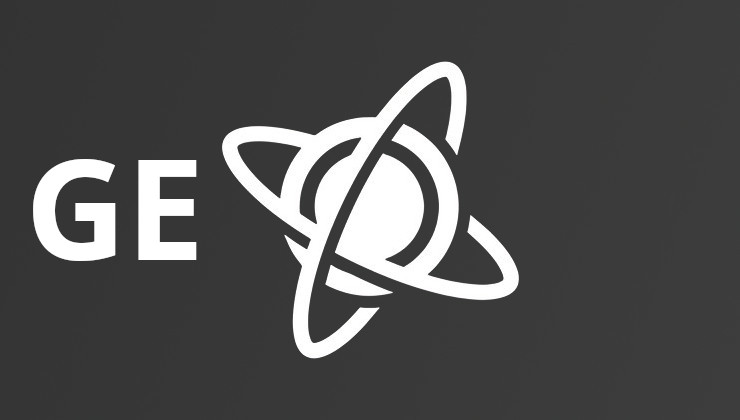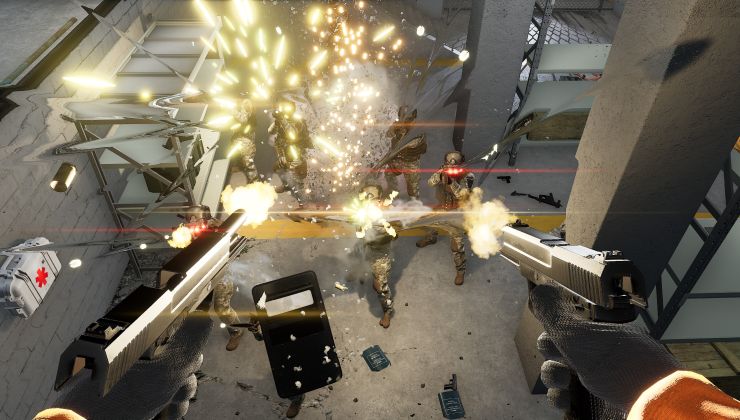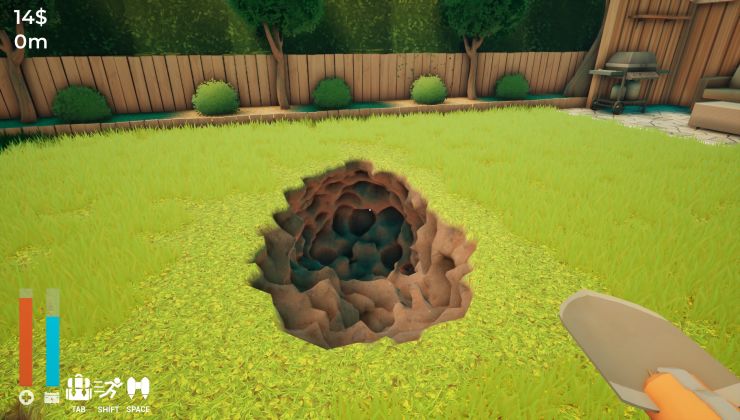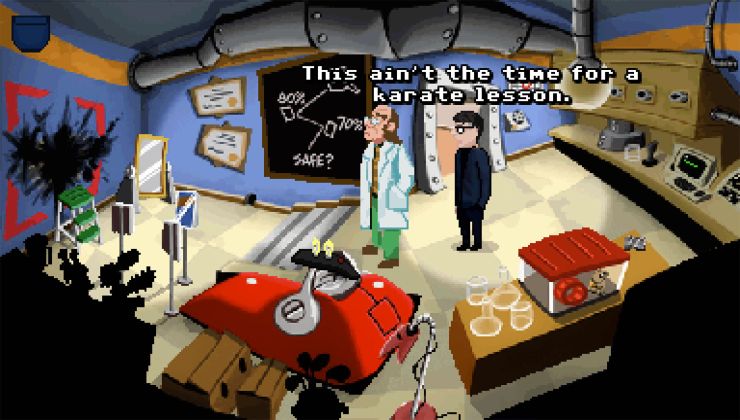There's some interesting plans ahead coming from the Linux Mint team including a new EDGE ISO for running Mint on newer hardware, info on the next Linux Mint release and their concerns with Ubuntu and Snap.
First up for fans of their LMDE (Linux Mint Debian Edition), it's still going and version 6 is code-named "Faye". With their plans to have all the features and changes from the main Linux Mint 21.2 but there's currently no ETA on when it will be available.
On top of that they've announced plans for a new Linux Mint EDGE ISO for Mint 21.2. The idea is to provide you with a download that has a fresher Linux kernel (6.2) for running Linux Mint on newer hardware. Seems like a sane idea, other distributions do a similar thing when refreshing their downloads. Not an entirely new thing for Mint though, they’ve done it for some previous releases.
Also the next main Linux Mint release 21.3 is planned for December, however they're likely to "reduce the scope" of it. While they have plenty planned they want to "prioritize some long-term aspects and dedicate some of our time to them" like updating their ISO production tools and fix secureboot. They're also doing some Wayland support investigation work.
Linux Mint's leader Clement "Clem" Lefebvre has also shown plenty of concern about Snap packages in Ubuntu, and it seems that issue has continued as they will be "keeping an eye on Ubuntu, their increased focus on Snap, the quality of their 24.04 package base and what this means for us going forward".
See more on the blog post.
I can understand their concerns about the package base, though I'm using standard Mint Xfce for now. Is there any major difference for the end-user when it comes to the Debian Edition? I assume not?
"EDGE" also sounds potentially very useful!
Why not go independent instead of relying on Debian? One thing that made me move from Mint was ages old packages.
Miss the old green Mint design, too, instead of the bland and black. :(

Why not go independentBecause it's a nearly insurmountable task.
Very briefly put; they would have to build everything themselves from scratch and deliver it via their own network, solve every bug and security issue themselves, keep everything updated and somehow manage to afford all these hardware and bandwidth costs, and it only gets worse the bigger the distro gets. Not to mention tiny details like what sort of package management system they will choose (or make their own, bonus nightmare), which init system, glibc or musl or something else? The horrible list goes on forever.
With flatpak's a lot of the key software is just as fresh as Arch, so it would just be a case of having newer versions of kernals, wayland and MESA on the EDGE.
Even the upcoming EDGE is not really EDGE as such. by Christmas it will be released with kernal 6.2. Not too far behind but then consider when is the next release after that.. etc. On my Arch machine i have 6.5 about to be released and important features (for me at least) like AMD-Pstate are being released on 6.6.
Is there any major difference for the end-user when it comes to the Debian Edition?I've not used it but from what I've read LMDE lags behind a little with features compared to the Ubuntu based versions. However, it seems to be catching up. It was originally conceived as a backup in case they ever had to ditch Ubuntu, so I would imagine with the way things are going they might be accelerating its development.
Last edited by CountVlad on 11 Aug 2023 at 11:04 pm UTC
What's stopping anyone from installing the 6.2 kernel on current LM (21.2)? The option's right there in Mint's update manager!Nothing's stopping anyone from installing it. In fact, I'm always running the latest stable kernel (6.4.10 currently) on Mint and setting that up only took a couple of minutes. No need to touch the terminal even.
The point is to have an installation image that works on your brand new hardware. That's all. You can't exactly get into the update manager if the live USB doesn't even start.
What's stopping anyone from installing the 6.2 kernel on current LM (21.2)? The option's right there in Mint's update manager!
What's stopping anyone from installing the 6.2 kernel on current LM (21.2)? The option's right there in Mint's update manager!Nothing's stopping anyone from installing it. In fact, I'm always running the latest stable kernel (6.4.10 currently) on Mint and setting that up only took a couple of minutes. No need to touch the terminal even.
The point is to have an installation image that works on your brand new hardware. That's all. You can't exactly get into the update manager if the live USB doesn't even start.
The problem i have had consistently across mint installs and different hardware is that the Boot partition fills really quickly when i added the custom kernal. This means i have to manually clear out older entries (try not to do the wrong one by mistake). It keeps happening and all i have done is choose the same upgrade option as is available to everyone else.
It's a pain, it's pretty unprofessional to have to do this on a distro that promotes ease of use..
worse still, sometimes a kernal update to the desktop occurs with it completely finishing perfectly but then the HDD shows a bug of it having 0% space left and the machine will hang and then not login to desktop because there is not space to boot. so then as a noob you have to be proficient enough (and have a second machine spare to learn what the problem might be if you manage to work it out ??) to boot to terminal and manually remove selected kernals from the boot partition.
So i don't advise my from experience adding custom kernals to linux mint. Not only that the kernals are not LTS anyway and your then potentially creating the same problem when the next big upgrade occurs and the upgraded kernals fills up the boot along side your previous manually upgraded kernal etc...
im sure by having an auto remove feature to clear old kernals this could be fixed. There are threads on the mint forums going back a while but that place is a ghost town and mostly the advice is to run a clean kernal command. But your likely to have the problem before the fix so it's not a great solution.
To me it's a thing they need to sort out. OR they could just run a semi-rolling Debian edge iso with much newer kernals for those who need it in future and leave the standard one without that feature.
its why i moved to Arch, i just haven't had a good time adding 'after market' post install newer Mesa and kernal versions to Mint without some degree of eventual problem.
Last edited by Lofty on 13 Aug 2023 at 5:52 pm UTC
its why i moved to Arch, i just haven't had a good time adding 'after market' post install newer Mesa and kernal versions to Mint without some degree of eventual problem.Yes. In my long experience with Arch on multiple computers is that you have to do the least amount of fiddling in the long run (unless something really bad happens like the premature switch to KDE 3 – I'm really bad at remembering numbers). That was a horrible experience since that update killed everything desktop related.
I even switched from 32bit to 64bit on a running system without an issue.
The problem i have had consistently across mint installs and different hardware is that the Boot partition fills really quickly when i added the custom kernal. This means i have to manually clear out older entries (try not to do the wrong one by mistake). It keeps happening and all i have done is choose the same upgrade option as is available to everyone else.The update manager's configuration dialog has a "Remove obsolete kernels and dependencies" setting. It's been there for a good while.
It's a pain, it's pretty unprofessional to have to do this on a distro that promotes ease of use..
So i don't advise my from experience adding custom kernals to linux mint. Not only that the kernals are not LTS anyway and your then potentially creating the same problem when the next big upgrade occurs and the upgraded kernals fills up the boot along side your previous manually upgraded kernal etc...The "custom" kernel I'm using is a metapackage that depends on the last two versions of the actual kernel image, so it only keeps one fallback kernel installed. If you're curious, it's [Xanmod's](https://xanmod.org/) stable mainline. Has been serving me well for a couple of years now.
The update manager's configuration dialog has a "Remove obsolete kernels and dependencies" setting. It's been there for a good while.
Honestly that's new to me, should that not be some sort of default?
i have run mint for years and never seen that feature. I did do a search and find that 19.2 'Tina' had this option added but unless i read the blog i would not of known about it. The things is, people often advise new users from windows to move to linux mint and when the hardware needs a newer kernel or set of drivers the most information people ever give is to use the update manager and apply, i have never seen anyone ever explain to move into the settings pane and navigate to the 'automation' tab to manage kernal updates.
Don't get me wrong i use mint on my low end 'stable' mini pc for that consistency.
Ironically the network adapter doesn't work 100% because the kernal fix for it comes in a much newer version but dont be mistaken that the hardware is cutting edge, because thats the thing with Linux, you can have older hardware that suddenly gets fixed up several years later all of a sudden in a newer kernal and be waiting 6 - 8 or more months on mint / debian to recieve it.
It's basically never good to be on an older kernal. But just 'how' old is up for debate depending on the level of support you need for the hardware you choose to own. That's down to the individual.
its why i moved to Arch, i just haven't had a good time adding 'after market' post install newer Mesa and kernal versions to Mint without some degree of eventual problem.Yes. In my long experience with Arch on multiple computers is that you have to do the least amount of fiddling in the long run (unless something really bad happens like the premature switch to KDE 3 – I'm really bad at remembering numbers). That was a horrible experience since that update killed everything desktop related.
I even switched from 32bit to 64bit on a running system without an issue.
yup. That has been my experience, i just give it about 4 -5 days between arch updates so that ooopsie's are usually reverted or fixed by the time i come to update.
You can get by just fine on Debian / Mint just awell now there are flatpacks for most software. But for video drivers, Wayland, VideoCasting, VRR-Freesync, HDR, CPU optimizations, cutting edge MESA optimizations, Motherboard support and lots of other newer features you are going to be sitting in the dark, waiting on mint / debian twiddling your thumbs for that new (actually very late to the party VS windows) feature sets, perhaps a year.
But i support mint as it's a solid distro and i think something close to Debian SID could be a really good base for Mint Debian EDGE combined with flatpak, it might offer the kind of stability that Manjaro goes for with it's slightly slower update cycle without all sometimes crazy Manjaro team decisions.
Either way the choice is good. Arch is my goto for a gaming system right now.
Last edited by Lofty on 13 Aug 2023 at 7:46 pm UTC
The problem i have had consistently across mint installs and different hardware is that the Boot partition fills really quickly when i added the custom kernal. This means i have to manually clear out older entries (try not to do the wrong one by mistake). It keeps happening and all i have done is choose the same upgrade option as is available to everyone else.Save yourself the headache and use a single partition layout next time. The benefits of multiple partitions on the same disk are not worth it.
It's a pain, it's pretty unprofessional to have to do this on a distro that promotes ease of use..
Like someone else said, I too have a bit of an endearing feeling towards Mint since it was the first distro I dual-booted with seriousness. But it's been about eight years since I replaced it with Arch, and there still isn't anything close to making me want to switch even though I play with distros in VM's frequently.
Last edited by 14 on 14 Aug 2023 at 4:58 am UTC
Save yourself the headache and use a single partition layout next time. The benefits of multiple partitions on the same disk are not worth it.I don't mess with much, but I do very much like to keep a separate /home partition.
What are you gaining from that? When you copy to a new drive, do you do it at block level or something? Are you using different mount options? Different filesystem? I'm curious why you like it very much, enough to have to manage a synthetic size limitation.Save yourself the headache and use a single partition layout next time. The benefits of multiple partitions on the same disk are not worth it.I don't mess with much, but I do very much like to keep a separate /home partition.
I don't know about him, but I like a separate home partition simply because it makes reinstalling or dual booting distributions a bit simpler. I don't do either of these often, but still.What are you gaining from that? When you copy to a new drive, do you do it at block level or something? Are you using different mount options? Different filesystem? I'm curious why you like it very much, enough to have to manage a synthetic size limitation.Save yourself the headache and use a single partition layout next time. The benefits of multiple partitions on the same disk are not worth it.I don't mess with much, but I do very much like to keep a separate /home partition.
Your big downside is a non-issue if you can allocate more than the bare minimum for your root partition in the first place. There's nothing to manage, unless you worry about potentially wasting a few gigs of drive space.
Mostly for reinstalls and similar shenanigans. I'm not a tinkerer; if something goes wrong (which, it's been a while, but my habits were formed in the bad old days) my calculation is a reinstall is very likely to be faster than fucking around until I get the right fix (after reverting several wrong ones). And sometimes with Mint just "installing the new version, wiping the old" can work better than doing an upgrade.What are you gaining from that? When you copy to a new drive, do you do it at block level or something? Are you using different mount options? Different filesystem? I'm curious why you like it very much, enough to have to manage a synthetic size limitation.Save yourself the headache and use a single partition layout next time. The benefits of multiple partitions on the same disk are not worth it.I don't mess with much, but I do very much like to keep a separate /home partition.
As I say, this habit was established in like the 2000s. Probably less of an issue these days, but since it's a habit that has served me well but has never to my knowledge caused me any trouble, I think some upside versus zero downside is pretty worth it. There's always enough disk space that giving / more than it really needs doesn't take up much.








 How to set, change and reset your SteamOS / Steam Deck desktop sudo password
How to set, change and reset your SteamOS / Steam Deck desktop sudo password How to set up Decky Loader on Steam Deck / SteamOS for easy plugins
How to set up Decky Loader on Steam Deck / SteamOS for easy plugins
See more from me